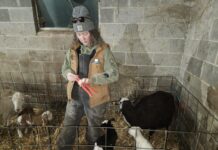WASHINGTON – The House of Representatives passed legislation June 18 that calls for permanent repeal of the death, or estate, tax in 2011.
H.R. 8, or the Death Tax Repeal Permanency Act of 2003, moved from the House by a 264-163 vote.
No vote has been scheduled in the Senate at this time.
The American Farm Bureau Federation and the National Cattlemen’s Beef Association had pushed the permanent, final repeal of the estate tax.
“The death tax is killing the dreams of generations of America’s farmers and ranchers,” said Chandler Keys, National Cattlemen’s Beef Association vice president of government affairs.
“These families provide the backbone of our country, and we need to help them.”
Can’t convert assets. In an asset-rich and cash-poor business, the appraised value of rural land is “extremely inflated” compared to the agricultural value over the years, according to the cattlemen’s association.
Many farmers are forced to sell off land, parts of the operation, or the entire farm to pay off tax liabilities, farm proponents argued.
“Farm operations are capital intensive businesses whose assets are not easily converted into cash,” said American Farm Bureau President Bob Stallman.
When heirs have to sell parts of the business to pay death taxes, “the economic viability of the business is destroyed,” he added.
Tax increase? But the National Farmers Union said the House action could actually increase taxes for family farmers.
Farmers Union national president Dave Frederickson said under the repeal bill, heirs to moderately sized estates could face capital gains tax liabilities. That’s because the new measure doesn’t include a “stepped-up” basis clause contained in the current estate tax statute.
Current law adjusts the value of assets based on current values rather than original costs, Frederickson said.
Lost revenue. Frederickson also said permanent repeal would result in nearly $1 trillion in lost federal revenues over the next 20 years, which could create higher budget deficits and reduced funding for services.









